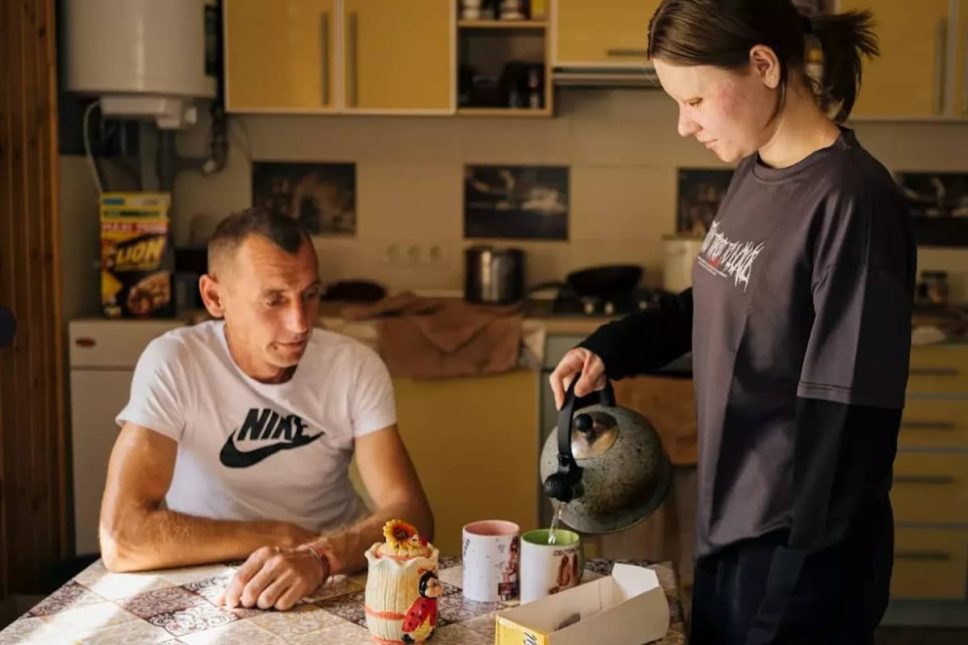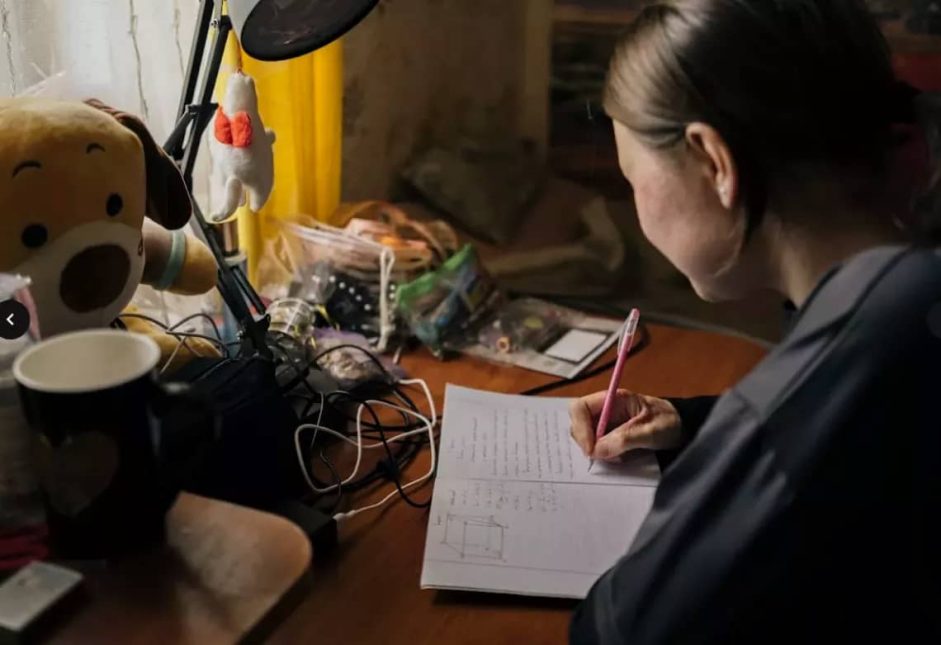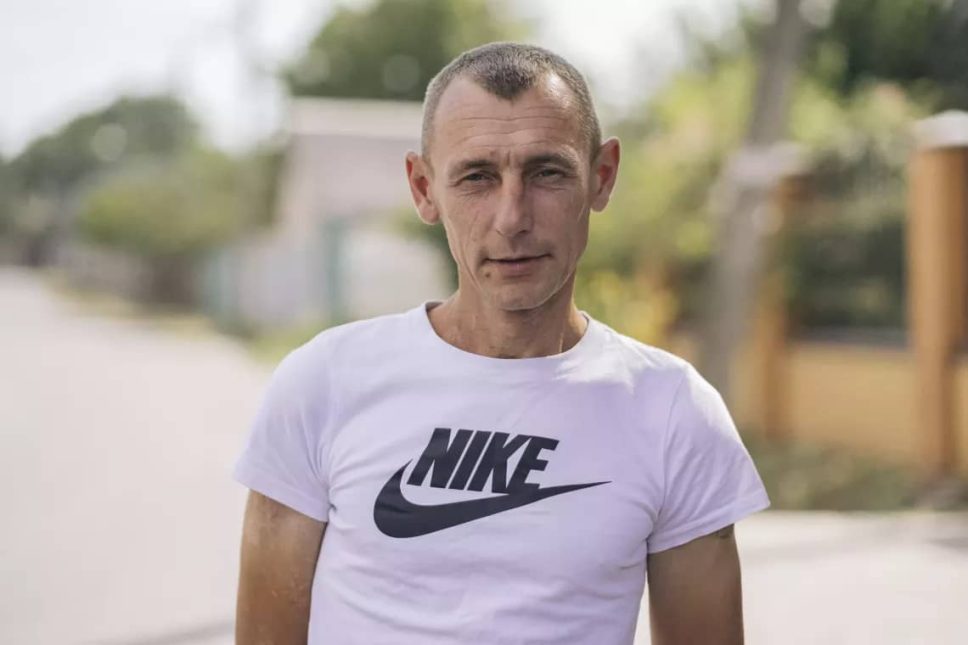
After mine tragedy, Ukrainian teenager helped on journey to recovery
20/09/2024
The ongoing war in Ukraine has left countless children vulnerable to the dangers of landmines and other explosive ordnance. Sixteen-year-old Khrystyna from the Kharkiv region has experienced the horrors of war firsthand. Her life was forever changed by a landmine explosion that not only caused severe physical injuries – burns to her face and arm – but also inflicted deep emotional wounds.
In June 2023, Khrystyna’s family was travelling in their car when it hit a landmine. The blast killed her mother instantly, and her brother succumbed to his injuries after five days in the hospital. While Khrystyna survived with multiple burns and serious injuries, requiring long-term rehabilitation, she and her father now live in rented accommodation in a new town, trying to pick up the pieces.

UNICEF’s child-focused victim assistance programme, implemented in partnership with the IRC and supported by the European Union’s Directorate-General for Civil Protection and Humanitarian Aid (ECHO), was launched in January 2024 across Kharkiv, Odesa, Mykolaiv and Kherson. The programme offers comprehensive support, including case management, individual psychological counselling, structured psychosocial support, and an emergency case management fund for children and their families affected by mines and other explosive ordnance accidents. It also promotes disability inclusion through community engagement activities.
As a preventive measure, UNICEF’s and IRC’s implementing partner, the Ukrainian Demining Association (UDA) NGO, conducts Explosive Ordnance Risk Education (EORE) sessions for children and adolescents to raise awareness about the dangers of mines and unexploded ordnance. Additionally, the programme aims to strengthen the capacities of social services in providing case management for children and families affected by accidents related to mines and other explosive ordnance, and to enhance the capabilities of local civil society organizations in survivor assistance programmes.

The Department of Social Protection of the Kharkiv Regional Military Administration referred Khrystyna to the child-focused victim assistance programme implemented by the IRC, in order to provide comprehensive support. The IRC swiftly mobilised to provide the girl and her father with the necessary support. An IRC case worker met with Khrystyna and her father to assess their immediate and long-term needs, and Khrystyna soon started receiving individual psychological assistance from an IRC psychologist on a weekly basis. Later on, the case worker identified the need for transportation to the hospital for regular check-ups, and the IRC provided support with this to ensure that Khrystyna’s health is closely monitored for healing and rehabilitation. Both the IRC’s case worker and psychologist provided emotional support to Khrystyna, helping her to process her emotions, cope with her trauma and adapt to her new circumstances.
In working closely with Khrystyna, it became clear that addressing the family’s basic needs was also a priority. The IRC provided material assistance, including clothes, shoes and other necessities as part of emergency case management fund support. This immediate support helped alleviate some of the daily challenges Khrystyna and her father faced as they navigated their new circumstances.

Additionally, the IRC’s case worker referred Khrystyna and her father to government institutions and other NGOs for additional support. Khrystyna’s family was assessed eligible for the IRC’s cash assistance programme and will start receiving help in the upcoming months. According to child protection specialists, the family’s relationships have been strengthened, and Khrystyna has found a sense of stability and hope, despite her challenges during this recovery process.
Khrystyna’s journey to recovery has been a testament to her resilience and the power of compassionate support. After suffering severe burns and losing her mother and brother, Khrystyna faced immense physical and emotional challenges. The IRC and UNICEF’s comprehensive child-focused victim assistance programme, supported by the European Union’s Directorate-General for Civil Protection and Humanitarian Aid (ECHO) – including case management, material assistance, specialised psychological counselling and referrals for other protection needs – has been instrumental in her recovery. Her participation in therapy sessions and the safe space provided by IRC child protection specialists have been crucial to her emotional healing.
In addition to addressing Khrystyna’s immediate needs, our efforts have had a long-term impact, enabling her to envision a future again. Khrystyna’s story is a powerful reminder of the importance of timely, high-quality and child focused victim assistance, and the need for collective efforts to protect children from the devastating effects of war and to provide appropriate support to the often long-term injuries resulting from explosive ordnance accidents. Her courage and determination inspires us to continue our work and advocate for a safer, more compassionate world.
Stories
-
Katarina Mathernova: If Ukraine had a human face and a human spirit, it would be 10-year-old Roman Oleksiv
-
A regional mission to drive social entrepreneurship: the story of Ksenia Kosukha
-
EU restores safe water supply for 100,000 Ukrainians affected by war
-
Promoting IT during the war: Lviv IT cluster and how EU4Digital helps
-
Frontline digitalisation: Kharkiv IT Cluster collaborations
-
How EU4Youth is driving opportunity and success among young Ukrainians